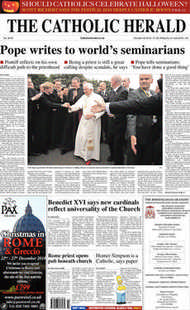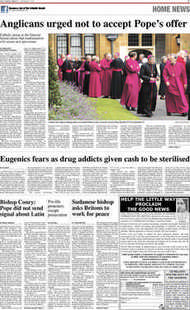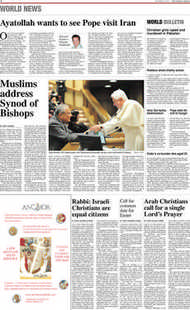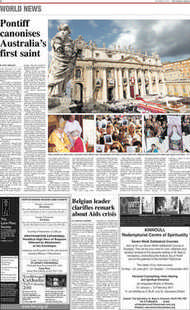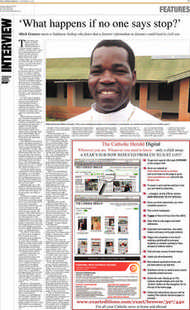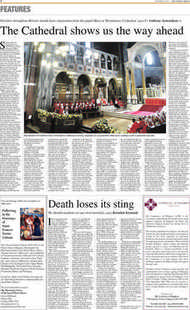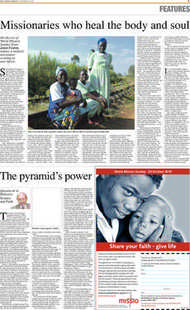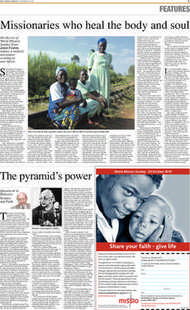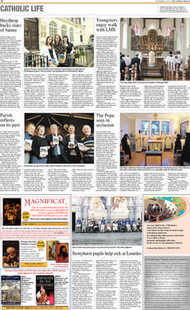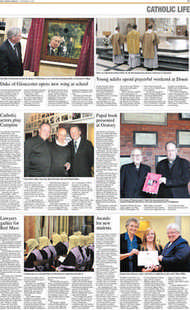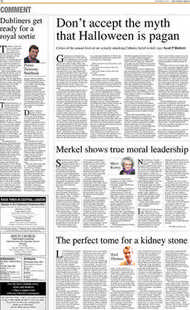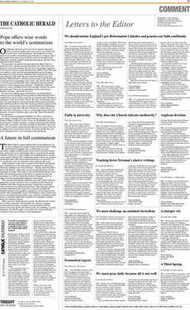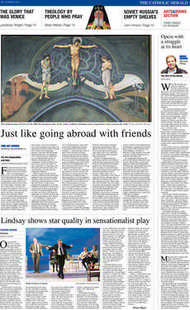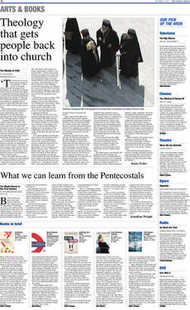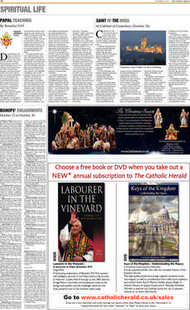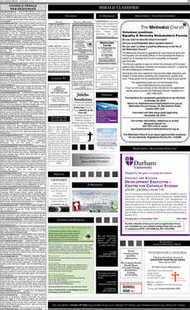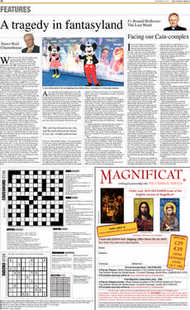Page 17, 22nd October 2010
Page 17

Report an error
Noticed an error on this page?If you've noticed an error in this article please click here to report it.
Tags
Share
Related articles
What we can learn from the Pentecostals
The Black Church in the 21st Century
BY JOE ALDRED AND KENO OGBO DLT, £14.99
Both Aristotle and Lenin got many things wrong but they rightly stressed the importance of defining our terms. The editors of this volume follow their lead. The “Black Church” of the title is “that multi-denominational Christian tradition that has been established in Britain by people from the Caribbean and Africa”.
Said tradition bucks the trend of dwindling church attendance, it has a very good record of gliding across denominational lines and it lends considerable cohesion and support to the communities it serves.
The book covers a great deal of ground (theology, ecumenism, gospel music, mechanisms for resolving disputes) but it is at its best when it enters the realm of social issues.
Any church worth its salt must be able to define and transform the workaday lived realities of its members. Here, many of Britain’s Black churches score very highly.
One of the best pieces in the book is Cheron Byfield’s study of education. As she writes: “For decades the discourse on the education of Black children has been monopolised by the underachievement dialogue.” Black kids do worse. Byfield seeks to “address this imbalanced picture” by focusing on the role the “Black churches have played in contributing towards [children’s] educational success”.
This is a stereotype-smashing chapter but as Byfield and all the other contributors would presumably agree there are still many untapped or under-exploited opportunities.
Political engagement, we’re advised, is crucial. Issues like health and climate change ought to be at the top of agendas.
There should, Joe Aldred argues, be an attempt to reach out to “non-Black, nonAfrican and non-Caribbean heritage communities” because continuing “to fish two per cent of all the fish in the sea” is no longer sufficient.
This is a truly revelatory book. It is an insiders’ guide to one of the most dynamic inhabitants of the British religious landscape and even if you dislike its theological texture you will be obliged to admire its honesty.
The book is intended, I think, as an in-house blueprint for the future but it warrants a much wider readership.
The book offers many helpful tips: treat the young people with respect, listen to what they have to say, and don’t dismiss them as troublemaking irritants; work hard to remember the past but have the common sense to identify the shifting tides of the present; above all, seek out “unity in diversity”.
I’m about as Pentecostal as a pineapple but this strikes me as good advice and it is applicable to faiths far removed from the religious tradition explored in this intriguing book.
Jonathan Wright
blog comments powered by Disqus


